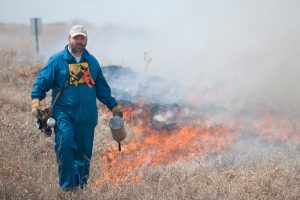Critical Habitat Screening Workshop
- Start Date: April 17, 2019
- End Date: April 17, 2019
- Time: 9am - 4pm
- City: Revelstoke, BC
- Venue: Regent Hotel
- Instructor: Darcy Henderson, Katrina Stipec, Lynn Campbell
Workshop Description
Habitat loss and modification are leading causes of population decline in many rare and endangered species. The federal Species At Risk Act (SARA) describes Critical Habitat (CH) as the habitat that is necessary for the survival or recovery of a listed wildlife species (schedule 1), and that is identified as the species’ critical habitat in a recovery strategy or in an action plan for the species. Many projects now require screening for critical habitat (CH) as part of the impact assessment process.
This workshop will provide tools and methods for screening for CH, including how to obtain CH mapping information; how to determine if one has the most current CH information for a given species; how Species at Risk (SAR) legislation is applied (for example, in the case of migratory birds that are also species at risk); and how to determine if a SAR permit is required. Participants will learn about the different jurisdictional issues affecting federal versus non-federal lands. They will have the opportunity to “workshop,” in group sessions, through mock scenarios of situations requiring SAR permits and gain practice in filling out permit applications.
In the afternoon, the BC Conservation Data Centre (CDC) will give an overview of the CDC and will demonstrate two online applications relevant to CH screening: BC Species and Ecosystems Explorer and the CDC iMAP.
Also, an update (via a remote presentation) will be provided on the status of the proposed BC SAR legislation. Workshop attendees will have the opportunity to ask questions.
Workshop lead by:
 Darcy Henderson, Senior Species at Risk Biologist, Ministry of Environment and Climate Change Strategy
Darcy Henderson, Senior Species at Risk Biologist, Ministry of Environment and Climate Change Strategy
Darcy is a Senior Species At Risk Biologist with Canadian Wildlife Service in Kelowna, British Columbia, with 29 years of related experience in the four Western Provinces. He currently reviews species status assessments, designs and conducts monitoring programs, writes recovery plans, reviews permits and environmental assessments, and advises consultants and stewardship organizations about all plant, invertebrate and vertebrate Species At Risk in the dry interior of British Columbia. He previously worked with the protected areas and grassland restoration programs of Canadian Wildlife Service and Parks Canada in all four Western Provinces, as well as in the agricultural, forestry, fisheries, waterfowl, and Indigenous sectors of environmental management. Darcy has a PhD and MSc in renewable resources from the University of Alberta, BSc in biology from the University of Saskatchewan, and Diploma in renewable resources from Sask Polytechnic. He is an adjunct professor of plant science at the University of Saskatchewan and of biology at the University of British Columbia – Okanagan, as well as current chair of the Society for Ecological Restoration, Western Canada. Darcy can be reached at darcy.henderson@canada.ca
 Katrina Stipec, BC Conservation Data Centre, Ministry of Environment and Climate Change Strategy
Katrina Stipec, BC Conservation Data Centre, Ministry of Environment and Climate Change Strategy
Katrina completed her BSc in Geography from University of Victoria. Since then she has worked for non-profit organisations, regional, federal and the provincial government in various fields that have included Sensitive Habitat Inventory and Mapping, support in the fields of forestry, transportation, mining and numerous environmental values.
She has worked with the BC Conservation Data Centre since 2005, and has made it her focus to help clients access BC species and ecosystems data and information. Katrina can be reached at Katrina.Stipec@gov.bc.ca
 Lynn Campbell, Species at Risk Biologist with the Ministry of Environment and Climate Change Strategy
Lynn Campbell, Species at Risk Biologist with the Ministry of Environment and Climate Change Strategy
Lynn Campbell received her BSc in Pure and Applied Ecology from the University of Guelph and began working on species at risk during undergrad university years. Some exciting field work opportunities led her to working on BC’s remote coasts, Australia, California and Scotland. Vancouver Island Marmots, Marbled Murrelets, Harlequin Ducks and Ring Ouzels offered the best habitat selection based on scenery. In Scotland, Lynn completed her Masters at University of Edinburgh and worked as a Scottish Local Biodiversity Action Plan Coordinator for Clackmannanshire Council. She began working for the BC Ministry of Environment in 2005 and has been working on species and ecosystems at risk on private and local government lands for 10 years. Lynn can be reached at Lynn.Campbell@gov.bc.ca
Workshop schedule:
Click HERE to see the workshop agenda.
This course has been approved by the Society for Ecological Restoration (SER) as a for-credit course! Students will earn 5 continuing education credits with SER’s Certified Ecological Restoration Practitioner (CERP) program.


